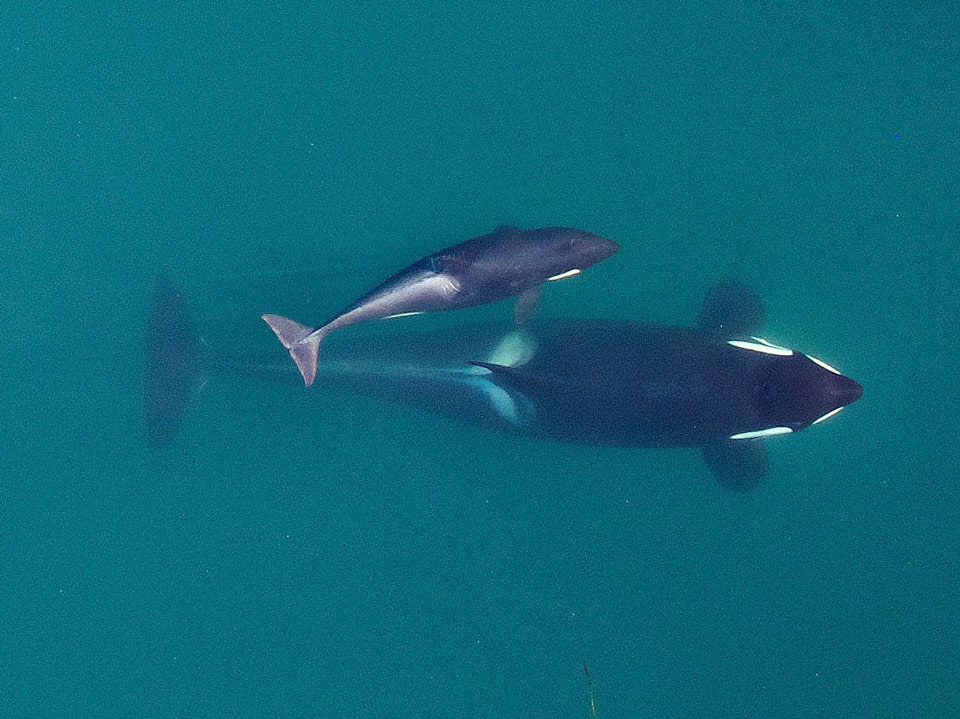December 21, 2022 - Washington - Senator Dianne Feinstein (D-Calif.) announced on Tuesday that the Driftnet Modernization and Bycatch Reduction Act, a bipartisan bill introduced by Senator Feinstein and Shelley Moore Capito (R-W.Va.) to phase out the use of harmful large mesh drift gillnets in federal waters, was included in the fiscal year 2023 omnibus government funding bill expected to be signed into law later this week.
Large mesh drift gillnets, which are between a mile and a mile-and-a-half long and can extend 200 feet below the ocean surface, are left in the ocean overnight to catch swordfish and thresher sharks. However, at least 60 other marine species, including whales, dolphins, sea lions, sea turtles, fish and sharks, are also regularly entangled in the large mesh net “walls,” injuring or killing them. Most of these animals, referred to as bycatch, are then discarded.
The use of large mesh drift gillnets by a single fishery based in California is responsible for 90 percent of the dolphins and porpoises killed along the West Coast and Alaska.
In 2018, California passed a four-year phase-out of large mesh drift gillnets in state waters to protect marine life. A majority of the driftnet fishermen have voluntarily participated in that phaseout. The Driftnet Modernization and Bycatch Reduction Act would extend similar protections to federal waters within five years and authorize the National Oceanic and Atmospheric Administration to help the commercial fishing industry transition to more sustainable gear types, including a grant program to supplement state funds.
“I’m excited that our bill to phase out harmful drift gillnets was included in the omnibus government funding bill and is poised to become law,” said Senator Feinstein. “Large mesh drift gillnets kill indiscriminately, leaving a trail of dead or injured marine life behind. We must be better stewards of our oceans and fisheries. Federal waters off the coast of California are one of the last places these deadly nets are still being used. Our bill would finally remove them while helping the swordfishing industry transition to more sustainable and profitable alternatives.”
The bill would phase out the use of the nets and help the industry transition to more sustainable methods like deep-set buoy gear that uses a hook-and-buoy system. Deep-set buoy gear attracts swordfish with bait and alerts fishermen immediately when a bite is detected. Testing has shown that as much as 98 percent of animals caught with deep-set buoys are actually swordfish, resulting in far less bycatch than large mesh drift gillnets, which average a 50 percent catch rate of target species.
A seven-year study by the Pfleger Institute of Environmental Research found that fishing vessels using the new deep-set buoy gear caught 83 percent more swordfish than those using traditional large mesh drift gillnets. Also, because vessels are alerted as soon as there is a bite, swordfish are transported to markets faster than with large mesh drift gillnets, resulting in higher-quality products that bring a higher price.
Congress originally passed the bill in 2020 with overwhelming support but it was vetoed by President Trump on January 1, 2021, which left too little time to schedule an override vote. The president’s veto was based on misinformation and misguided policy. A comprehensive rebuttal of the veto message is available here. The bill was passed unanimously by the Senate again last year.
Southern Resident orcas. Photo credit: NOAA Fisheries.
Source: Senator Dianne Feinstein








